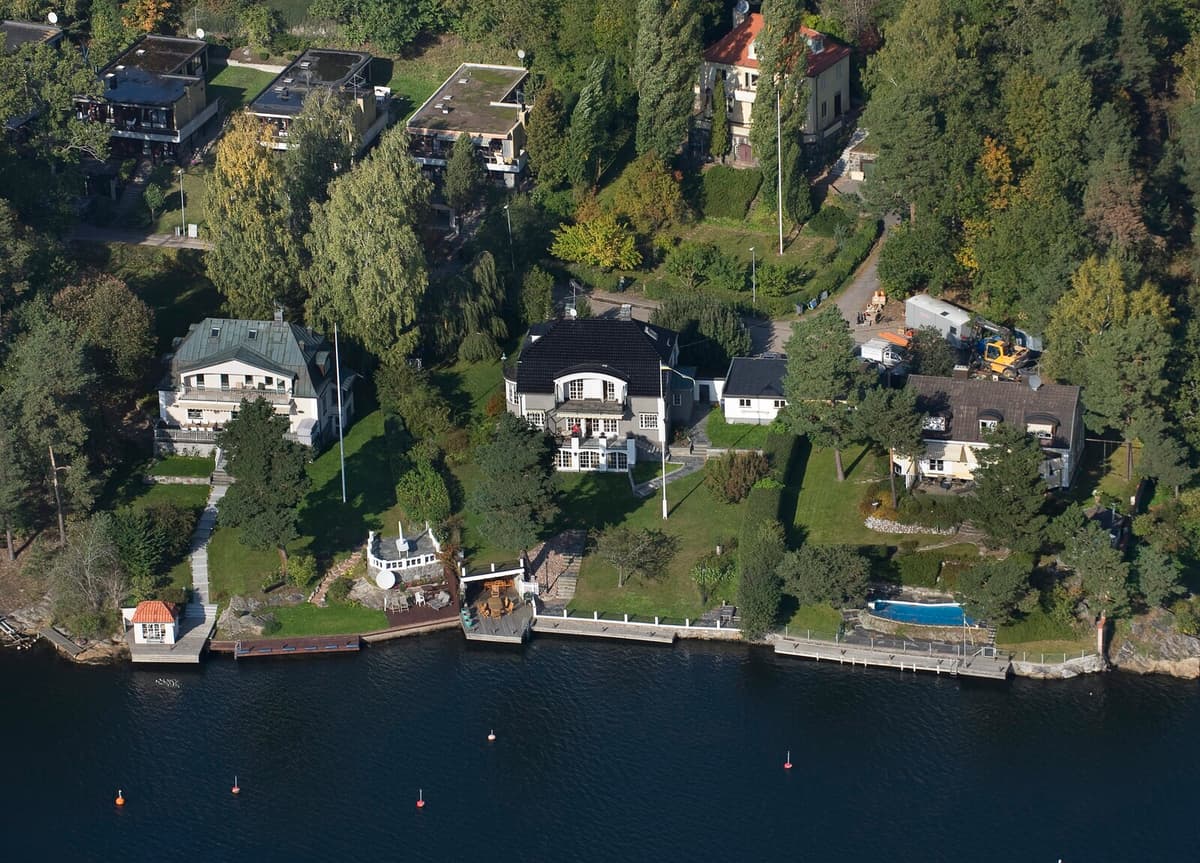According to the proposals, which have been submitted to Climate and Environment Minister Romina Pourmokhtari (L), a municipality can, for example, build a flood protection facility to protect "matters of general interest" - and charge a fee to other property owners who benefit.
What can be considered to be of general interest is deliberately broadly formulated, according to the investigator Johan Hjalmarsson. It can be buildings such as town halls and schools, but does not have to be.
There must be a municipal connection, but it does not have to be a municipal facility.
The risk must cease
However, there must be a "significant risk" of damage to the property in the event of a natural disaster in order to be able to charge a fee, and the risk must cease with the help of the measure. For the property owner, the sum to be paid must not be higher than 10 percent of the property's market value.
In the same way that we have great respect and strong will to defend property rights in Sweden, property rights do not only bring freedoms but also responsibilities, says Romina Pourmokhtari.
This is an example of the consequences of climate change that are real. Not in the future, but today, and that must be taken into account.
The investigation also proposes that the state takes responsibility for protecting certain coastal areas from flooding by building physical barriers. In that part, it is about choosing what should be protected - and which communities are left to the mercy of the wind. A partially dark picture, admits investigator Johan Hjalmarsson.
But it's not about something that changes overnight, but rather costs that can be distributed over a long period of years.
Areas where the needs are greatest need to be "phased in" and the work is urgent, he continues.
We have met many municipalities that see a need for the state to provide guidance now. We see a need to initiate this process fairly soon.
Maximum temperature indoors
Requirements for maximum temperatures in premises for particularly vulnerable individuals are also proposed.
Already today, heatwaves are a major problem for the elderly in our society. So I think it's very important that these issues come to light and that we discuss what we can do, says Pourmokhtari.
For municipalities and others, this may mean that they need to purchase air conditioning for elderly care homes.
If requirements are the way forward, that's something the government will need to look at. But measures will be required, and too little is being done today.
The Climate Adaptation Investigation builds on the work of an earlier climate adaptation investigation that was presented in 2017.
The investigation proposes, among other things:
Municipalities must keep their detailed plans up to date and change or repeal them in parts with too great a risk if there are unbuilt plots there.
Municipalities are given the right to conditionally approve building permits in relation to climate adaptation measures.
Regulations with maximum indoor temperatures for housing for the elderly and disabled are introduced.
The possibility of obtaining a dispensation for climate adaptation measures is introduced.
The state is given the responsibility to build coastal protection for sea level rises at important locations, and to designate which areas are important.
Municipalities are given the opportunity to compel property owners to contribute to the cost of climate measures if the properties benefit from them.






